As your mortgage term winds down, one question matters most: will your lender renew it automatically, or could it cost you more than you expect?
In some cases, your mortgage may be renewed automatically. But automatic renewals aren’t always in your best interest. Understanding how mortgage renewals work in Canada, and what options you have, can help you avoid unnecessary costs and make confident decisions as your term ends.
What Is a Mortgage Renewal?
A mortgage renewal happens when your current mortgage term expires, but your loan is not yet fully paid off. At this point, you’ll need to sign a new agreement with your current lender or a new one to continue paying down your balance.
This new term may come with a different interest rate, payment frequency, or contract conditions. Renewal is a natural point to reassess your goals, compare offers, and potentially improve your mortgage terms.
How Does a Mortgage Renewal Work?
Federally regulated financial lenders in Canada are required to send you a renewal offer at least 21 days before your current mortgage term ends. Many lenders send these ahead of time to give you time to consider your options.
Your renewal offer will typically include:
- A proposed new interest rate.
- The length of the new term.
- Your updated payment amount or schedule.
- Any changes to conditions from your previous term.
While it might seem convenient to accept the first offer, it may not reflect the most competitive rate available to you. This is why it’s important to review the terms carefully and consider exploring your options, especially if your financial goals or situation have changed.
What Happens If You Don’t Renew Your Mortgage?
If you ignore or miss your mortgage renewal, two possible outcomes can occur:
- Your lender may automatically renew your mortgage, typically into a short-term product with a posted interest rate. This may increase your monthly payments.
- Your mortgage may become non-compliant, meaning you could face penalty fees or even legal action if no agreement is signed. Most lenders try to avoid this and will reach out multiple times but it’s a risk if you don’t respond.
To avoid surprises or added costs, it’s best to take action before your term ends. Whether that means renewing with your current lender or exploring other options.
Can You Renew Your Mortgage Early?
Most lenders allow you to renew your mortgage before your term ends. This is called an early renewal window.
It’s important to note that there can be a penalty or a blended rate that is offered to absorb the penalty into the rate. Working with a mortgage broker can help you understand what you’re allowed to do and what it will cost before signing.
Renewing early can help you:
- Lock in a rate before interest rates rise.
- Adjust your mortgage to better fit your current goals.
- Shop around without the pressure of a looming deadline.
Planning ahead gives you more control and flexibility in how your mortgage is structured for the next term.

Can You Pay Off Your Mortgage at Renewal Without Penalty?
At the end of your mortgage term, you are able to pay off your mortgage. It’s one of the few times you can make large changes to your mortgage, like paying it off in full, without a penalty.
At renewal, you can:
- Pay your mortgage off completely
- Make a large lump-sum payment (if allowed)
- Switch to a new lender without breaking your current contract
Because you’re not breaking your mortgage mid-term, prepayment penalties typically don’t apply. Always confirm the terms with your lender, but for most borrowers, renewal is the most flexible time to make big decisions.
Mortgage Renewal Advice: 5 Tips to Consider
Whether your mortgage renews automatically or not, here’s how to make the most of this transition:
1. Don’t Sign Without Comparing
The rate in your renewal offer might not be the lowest one you qualify for. Review it carefully, and don’t hesitate to compare offers from other lenders.
2. Take Advantage of the Early Renewal Window
Start evaluating your options 3–4 months before your term ends. Early planning can help you avoid higher rates or rushed decisions.
3. Work With a Mortgage Broker
A broker can access rates from multiple lenders, explain your options, and help you make informed choices, often at no cost to you.
4. Review Your Long-Term Goals
Ask yourself if your current mortgage still fits your life. Do you want to pay it off faster? Lower your monthly payments? Change your term length? Renewal is the right time to realign your mortgage with your goals.
5. Be Open to Switching Lenders
You’re not required to renew with your current lender. If another provider offers better terms, switching may save you money over time.
Renew With Confidence and Clarity
Your mortgage renewal is more than a signature, it’s a key opportunity to improve how your mortgage works for you. By understanding your lender’s process, reviewing your options, and planning ahead, you can avoid surprises and take control of your financial future.
Mortgage Connection offers guidance from experts and access to a wide range of lenders to help you renew your mortgage with clarity and confidence. Whether you’re looking to secure a better rate or explore new options, their team is ready to help you make informed, stress-free decisions.
If your mortgage is about to renew, contact us to make the most of your mortgage experience.




